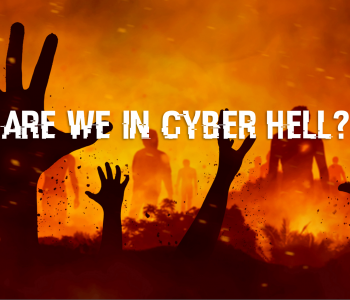 News
News
Ok with my AI companion GROK I’ve gone exploring on the differences between Japan’s new cyber laws and the UK! This is more GROK than me, but I thought people might find this interesting!
Japan’s New Cyber Law
Japan’s Active Cyberdefense Law is a big deal—it’s a shift from their usual defensive, peace-first stance, rooted in Article 9 of their constitution, which pushes pacifism. Here’s what it does:
- Striking First: For the first time, Japan can hack into and shut down hostile servers before they do serious damage, even if there’s no full-on attack. This is proactive stuff—think preemptive strikes in cyberspace.
- Who’s Involved: Cops handle smaller threats, while the Self-Defence Forces step in for big, sophisticated attacks. It’s a nod to Japan loosening up Article 9 to help allies if inaction screws them over.
- Keeping It in Check: An independent panel has to greenlight any data grabs or offensive moves, making sure things don’t get out of hand or trample on privacy.
- Internet Traffic: They can snoop on foreign internet traffic coming into or passing through Japan, but they’re barred from touching domestic data to stay clean with Article 21’s privacy protections.
- Why Now?: Japan’s been hit hard lately—think the 2023 cybersecurity agency breach or the 2020 defense network hack. They’re fed up and want to level up their game, especially with China in their sights.
This law’s about Japan stepping up, trying to match the big players in cyber warfare.
How the UK Handles It
The UK’s been in the offensive cyber game for a while, and they don’t have one neat law like Japan. Instead, they’ve got a mix of laws and policies that cover it. Here’s the rundown:
- The Laws:
- Intelligence Services Act 1994: Lets MI6 and GCHQ run cyber ops abroad to protect the country, as long as a minister signs off. This covers hacking and disruption.
- Investigatory Powers Act 2016: This is the big one for surveillance and hacking (they call it “equipment interference”). It lets agencies and cops hack systems here or abroad for national security, crime-busting, or economic reasons, with a warrant.
- Computer Misuse Act 1990: Normally, hacking’s illegal, but this law carves out exceptions for authorized government ops, so they don’t break their own rules.
- Military Angle: The National Cyber Force (NCF), a mix of GCHQ, Ministry of Defence, and MI6, handles military-grade cyber attacks. They operate under defense laws or the royal prerogative, sometimes needing Parliament’s okay for big moves.
- Going on Offense: The UK’s been open about its cyber muscle since 2018, when they bragged about the NCF hitting ISIS. They do preemptive and payback ops—think messing with Russian or Chinese hackers after attacks. It’s not as explicitly “strike first” as Japan’s law, but it’s part of their national security toolkit.
- Oversight: They’ve got layers of it:
- Ministers approve intelligence ops.
- The Investigatory Powers Commissioner’s Office (IPCO) checks warrants to make sure they’re legit and don’t violate rights.
- Parliament’s Intelligence and Security Committee keeps an eye on the spies.
- Judicial commissioners review intrusive stuff, like hacking, for extra accountability.
- Scope: The UK can hit foreign or domestic targets, but domestic ops face tighter rules to respect human rights laws (like the Human Rights Act 1998). They analyze foreign and domestic traffic with “bulk” or “targeted” warrants, unlike Japan’s foreign-only limit.
- Why They Do It: The UK’s dealing with ransomware screwing over the NHS and state-backed hacks from Russia and China. Their 2021 Integrated Review and 2022 Cyber Security Strategy say offensive cyber is key to scaring off enemies.
How They’re Different
- The Setup:
- Japan’s got a shiny new law just for offensive cyber, built to break from their pacifist roots. It’s all about preemption and mixes cops and soldiers.
- The UK’s using a bunch of older laws—intelligence, surveillance, defense—that weren’t made just for cyber but cover it. It’s messier but gives them flexibility.
- Preemption:
- Japan’s law screams “hit them before they hit us.” It’s their big selling point, driven by getting burned too many times.
- The UK does preemptive stuff too, but it’s wrapped up in broader “protect the nation” vibes. Their laws don’t spotlight preemption the way Japan’s does.
- Mindset:
- Japan’s walking a tightrope with their pacifist constitution and privacy rules, so their law’s super careful—only foreign traffic, no domestic spying.
- The UK’s got no pacifist baggage, so they’re freer to act. But they’ve got to play nice with European human rights laws, especially at home, which adds some red tape.
- Oversight:
- Japan’s got one new panel to watch everything, keeping it simple but untested.
- The UK’s got ministers, judges, commissioners, and Parliament all in the mix. It’s thorough but can feel like a maze.
- Snooping:
- Japan only looks at foreign data to avoid legal trouble.
- The UK’s fine with domestic and foreign, as long as they’ve got the right warrants. It’s a wider net.
- Experience:
- Japan’s the new kid on the block, rushing to catch up. Their law’s ambitious, but they haven’t flexed these muscles much.
- The UK’s been at it for years, with the NCF and GCHQ running ops and teaming up with the US and others. They’ve got the edge in know-how.
Where They’re Similar
- Both are getting aggressive to tackle cyber threats—China, Russia, you name it.
- They’ve got oversight to make sure things don’t go too far, balancing security with rights.
- They’re cozying up with allies—Japan’s joined NATO’s cyber club, and the UK’s a Five Eyes leader.
- Both are reacting to real attacks, like Japan’s breaches or the UK’s NHS hacks.
The Bigger Picture
Japan’s law is a bold move to join the cyber big leagues, but they’re still figuring it out. Preempting attacks sounds cool, but it could piss off neighbors like China if they overplay their hand. The UK’s got a head start, but their mix-and-match laws can be clunky, and domestic spying raises eyebrows. Both are part of a global trend where countries are weaponizing cyber, but with no clear international rules, it’s a bit of a Wild West.
[END OF GROK]




